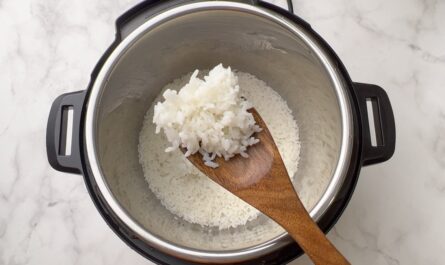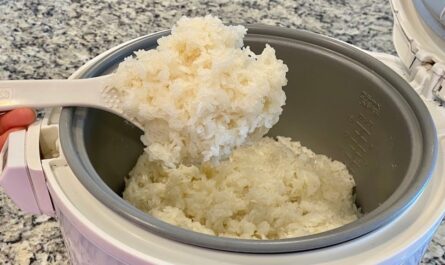The modern kitchen is incomplete without a rice cooker. Its a versatile appliance that makes life easier, especially for sushi lovers who need perfectly cooked rice every time. However, like any other kitchen gadget, its crucial to follow some rice cooker safety tips to ensure safe and efficient usage. Here, we will delve into various safety measures to help you use your rice cooker without any hassle.

Understanding Your Rice Cooker
Before diving into the safety tips, it’s essential to understand your appliance. Different models have varied features. Whether it’s a basic cooker or a high-end model, always refer to the manufacturers manual to understand its specific functionalities.
Placement and Setup
Always set up your rice cooker on a flat, stable surface. Ensure it is away from water sources to prevent electrical hazards. Avoid placing it near edges to prevent accidental tipping.
Electrical Safety
Ensure that your rice cooker’s cord is in good condition. Avoid using extension cords as they can increase the risk of electrical mishaps. Always plug your appliance directly into the wall socket.
Proper Usage of the Rice Cooker
When using the rice cooker, do not overfill it. Overfilling can lead to spillage, which can be hazardous. Always follow the instructions on the amount of water and rice to use.
Cleaning and Maintenance
Regular cleaning is vital. A dirty rice cooker can harbor bacteria and cause unpleasant smells. For tips on cleaning, check out how to remove rice cooker stains. Additionally, ensure the cooker is completely dry before storing or using it again.
Handling Hot Surfaces
Rice cookers can get very hot during and after use. Always use oven mitts when handling the cooker or its lid to prevent burns.
Dealing with Steam
Be cautious of the steam released from the cooker. Always open the lid away from you to prevent steam burns.
Storage of the Rice Cooker
When storing your rice cooker, ensure it is unplugged and completely cool. Place it in a dry area to prevent moisture damage.
Checking for Damages
Regularly inspect your rice cooker for any signs of wear or damage. If you notice any defects, consider replacing it. Read more on when to replace your rice cooker.
Using the Rice Cooker for Other Foods
While rice cookers are primarily for cooking rice, some models allow you to cook other foods. For instance, some sushi lovers might want to try cooking fish or vegetables. Always refer to your manual before attempting this. For more ideas, visit cooking meat in a rice cooker.
Preventing Unpleasant Smells
To prevent your rice cooker from developing bad odors, ensure thorough cleaning and drying after each use. Learn more on how to handle rice cooker smells.
Troubleshooting Common Issues
Should you encounter issues like the cooker not turning on or unevenly cooked rice, consult your manual or contact customer support for assistance.
Rice Cooker Sizes
Selecting the right size rice cooker is essential for optimal usage. For a guide on choosing the appropriate size, visit rice cooker size guide.
Energy Efficiency
Opt for rice cookers that are energy efficient. They not only help reduce electricity bills but are also environmentally friendly.
Regular Inspections
Conduct regular checks to ensure that your rice cooker is functioning properly. Address any wear and tear immediately to avoid potential hazards.

FAQs on Rice Cooker Safety
Can I leave my rice cooker unattended?
It is advisable not to leave your rice cooker unattended, especially for long periods. Always turn it off when not in use.
How often should I clean my rice cooker?
You should clean your rice cooker after every use to maintain hygiene and prevent odors.
Is it safe to cook other foods in my rice cooker?
Yes, but only if your rice cooker model permits. Always refer to the manual for guidance.
In conclusion, rice cooker safety tips are essential for every user to ensure safe and efficient use of this versatile appliance. Whether youre making rice for sushi or exploring other recipes, following these guidelines will ensure a safe cooking experience.
This article contains affiliate links. We may earn a commission at no extra cost to you.




